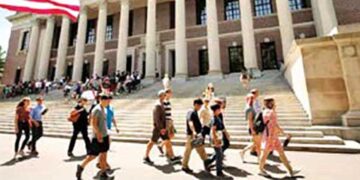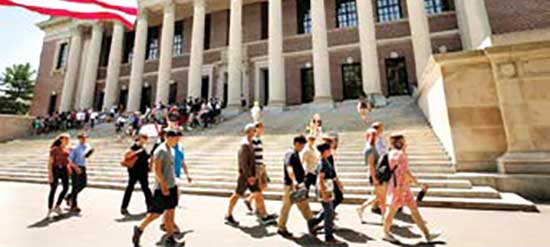BLITZ BUREAU
AMERICANS are increasingly skeptical about the value and cost of college, with most saying they feel the US higher education system is headed in the “wrong direction,” according to a new poll, reported AP.
Overall, only 36% of adults say they have a “great deal” or “quite a lot” of confidence in higher education, according to the report released on July 8 by Gallup and the Lumina Foundation. That confidence level has declined steadily from 57% in 2015.
Declining enrolment
Some of the same opinions have been reflected in declining enrolment as colleges contend with the effects of the student debt crisis, concerns about the high cost of tuition and political debates over how they teach about race and other topics. The dimming view of whether college is worth the time and money cuts across all demographics — including gender, age, political affiliation.
Among Republicans, the number of respondents with high confidence in higher education has dropped 36 percentage points over the last decade — far more than it dropped for Democrats or independents.
“It’s so expensive, and I don’t think colleges are teaching people what they need to get a job,” says Randy Hill, 59, a registered Republican in Connecticut and a driver for a car service. His nephew plans to do a welding apprenticeship after graduating high school. “You graduate out of college, you’re up to eyeballs in debt, you can’t get a job, then you can’t pay it off.
What’s the point?” The June 2024 survey’s overall finding — that 36% of adults have strong confidence in higher education — is unchanged from the year before. But what concerns researchers is shifting opinion on the bottom end, with fewer Americans saying they have “some” confidence and more reporting “very little” and “none.” This year’s findings show almost as many people have little or no confidence, 32%, as those with high confidence.
Lower lifetime earnings
Experts say that fewer college graduates could worsen labor shortages in fields from health care to information technology. For those who forgo college, it often means lower lifetime earnings — 75% less compared with those who get bachelor’s degrees, according to Georgetown University’s Center on Education and the Workforce. And during an economic downturn, those without degrees are more likely to lose jobs


























